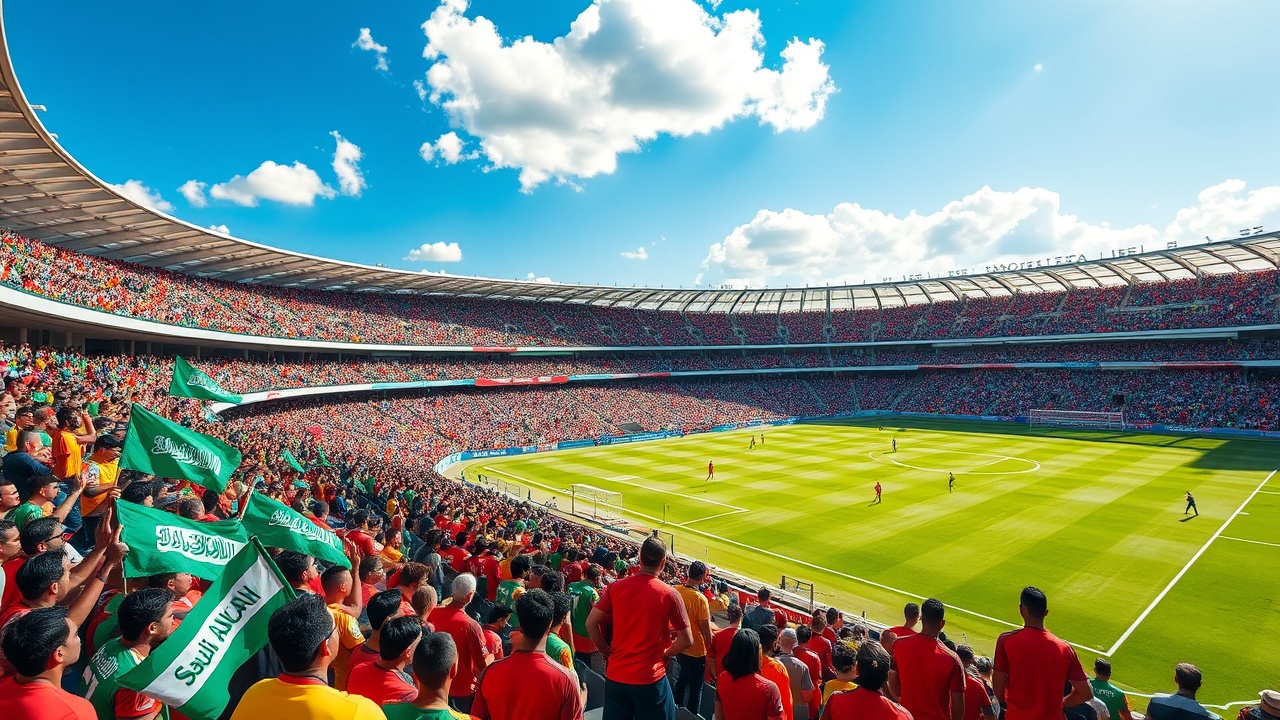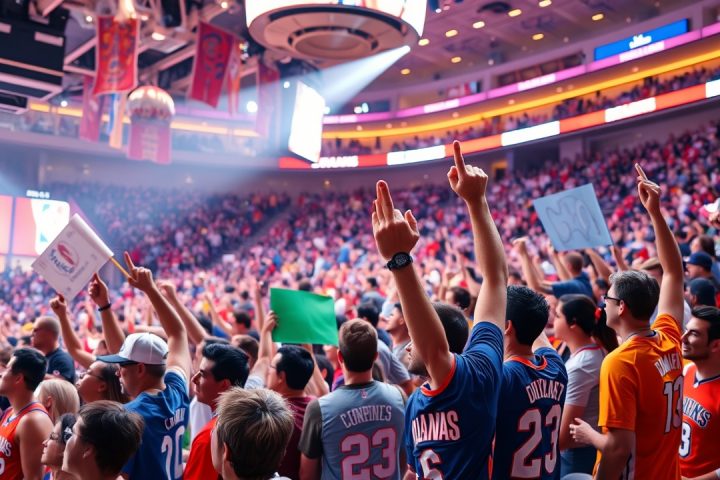Saudi Arabia’s Influence in Football
This summer, two major football tournaments in the U.S. – the Club World Cup and the CONCACAF Gold Cup – are not just sporting events, but also significant platforms showcasing the increasing influence of Saudi Arabia, both on the pitch and through commercial partnerships. The Kingdom of Saudi Arabia’s Public Investment Fund (PIF) has formed alliances with FIFA and CONCACAF, the governing bodies for these tournaments, while a number of Saudi companies like Aramco, Riyadh Air, and Visit Saudi are also gaining visibility as sponsors.
Broadcasting and Political Dynamics
The Club World Cup’s broadcasting arrangements with DAZN, which is now partly owned by PIF’s sports division SURJ, further underscore Saudi Arabia’s growing foothold in the world of football. A recent episode from The Athletic FC podcast titled “At what cost? Saudi Arabia and Soccer” delves into the implications of this trend, notably analyzing Al Hilal’s impressive run to the quarter-finals of the Club World Cup and the participation of the Saudi national team in the Gold Cup.
This podcast episode doesn’t shy away from the political dynamics at play, examining the longstanding relationship between the U.S. and Saudi Arabia, particularly in light of the criticism surrounding human rights in the kingdom.
Abdullah Alaoudh of the Middle East Democracy Center (MEDC), whose father has been imprisoned in Saudi Arabia since 2017, criticizes the lack of a human rights assessment in the partnerships formed. He argues that awarding Saudi Arabia the 2034 World Cup should not have occurred without significant reforms in the nation’s approach to human rights.
Human Rights Concerns
Alaoudh is part of a group of international lawyers, including Rodney Dixon KC, who have lodged complaints with FIFA, claiming that the organization has violated its own human rights standards. According to FIFA, all protocols were followed during the bidding process, asserting that comprehensive reports regarding bidders’ human rights practices were available publicly.
Indeed, FIFA had categorized Saudi Arabia’s human rights status as a “medium” risk according to its evaluation report for the upcoming tournaments. Supporters and officials from the soccer world, such as CONCACAF President Victor Montagliani, argue that engagement with Saudi Arabia is necessary, with the region showcasing its ambitions in global football.
The Saudi national team’s coach, Herve Renard, remains optimistic despite skepticism, stating that perceptions will eventually shift, while striker Saleh Al-Shehri echoes a sentiment of national pride in their footballing aspirations, driven by visionary leadership.
Club World Cup Surprises and Future Aspirations
The Club World Cup’s surprises continue with Al Hilal under new coach Simone Inzaghi, who is determined to elevate the team’s status internationally. Meanwhile, fans express mixed feelings about their nation’s reputation, acknowledging outside criticism about “sportswashing” yet also recognizing the power of investment in developing athletic prowess.
U.S. Men’s National Team (USMNT) head coach Mauricio Pochettino commends the growth within the Saudi Pro League and their national team, citing the unique experiences young Saudi athletes now have training with global icons like Cristiano Ronaldo and Karim Benzema, drawing parallels to the impact of such signings in MLS.
Broader Impact Across Sports
Football is not the only sport where this financial influence is felt; figures like boxing promoter Todd duBoef highlight how Saudi Arabia’s investments are changing the landscape across various sports. However, concerns remain about the region’s stability leading up to 2034, with experts cautioning that political tensions could pose risks to the World Cup.
In a world where Saudi financial power now intertwines with athletics, the ongoing narrative surrounding football, and its evolution in Saudi Arabia signifies that the nation’s ambitions and influence in global sports, especially football, are only poised to grow further.




